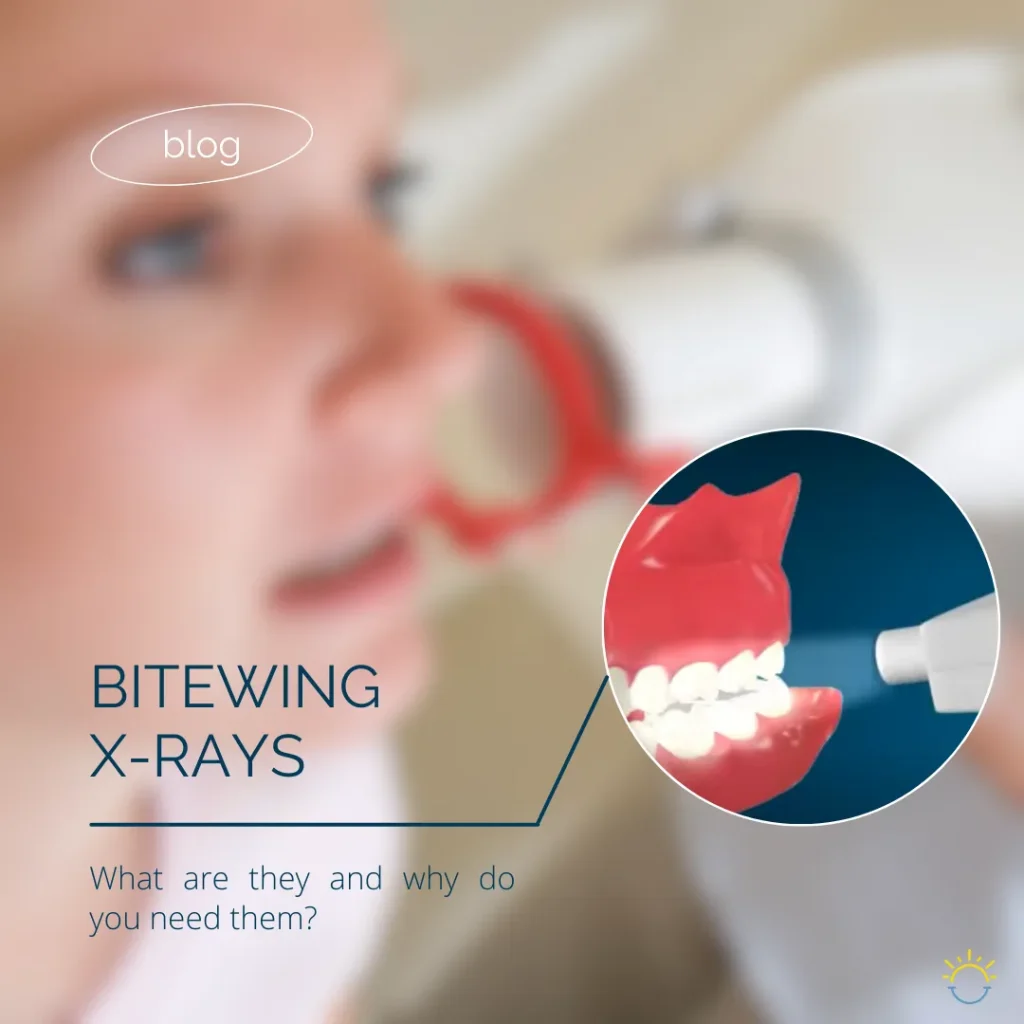X-ray images are an essential diagnostic tool in dentistry. One of the most routine and useful types of x-rays dentists take is the bitewing x-ray that shows both the upper and lower set of teeth. These x-rays provide a high level of detail and the capability to enhance an image, dentists can easily examine slides for conditions like cavities between teeth, tartar on tooth roots, weakened or broken fillings and crowns and receding bone levels as a result of periodontal disease. Dentists can use the expert technology to zoom in or improve the clarity of the bitewing digital x-ray on a computer screen, guaranteeing the best possible view of a patient’s teeth and surrounding area.
Why are they called that?
The name “bitewing” refers to how the film — or sensor, in the case of a digital x-ray — is positioned in the mouth: The patient bites down on a little tab or wing that holds the apparatus in place.
How often do I need bitewing x-rays?
This is determined on a case-by-case basis, with the goal of not exposing you to any more radiation than necessary — even the minimal amount found in a series of bitewing x-rays. Your individual susceptibility to caries (tooth decay) and personal dental history will play a major role in determining how frequently you need radiographic examination — and, for that matter, how often you need to come in for routine cleanings and exams.
Are they safe?
The safety of bitewing x-rays is best illustrated with a comparison to the regular daily radiation exposure we get every day from environmental sources, which is about 0.01 millisieverts — the unit of measure we use for radiation. A series of 4 bitewing x-rays exposes you to 0.004 millisieverts of radiation — less than half of the daily exposure. Undetected tooth decay, which can spread quickly through the softer inner layers of teeth, is considered much more dangerous!
If a bitewing x-ray shows that there is tooth decay, what happens next?
If the cavity is very small, we may be able to treat it during the same appointment. If not, we will make a separate appointment to make sure it is taken care of promptly. The sooner tooth decay is treated, the better!
For all of your dental questions, call us at 📲403-256-2727





